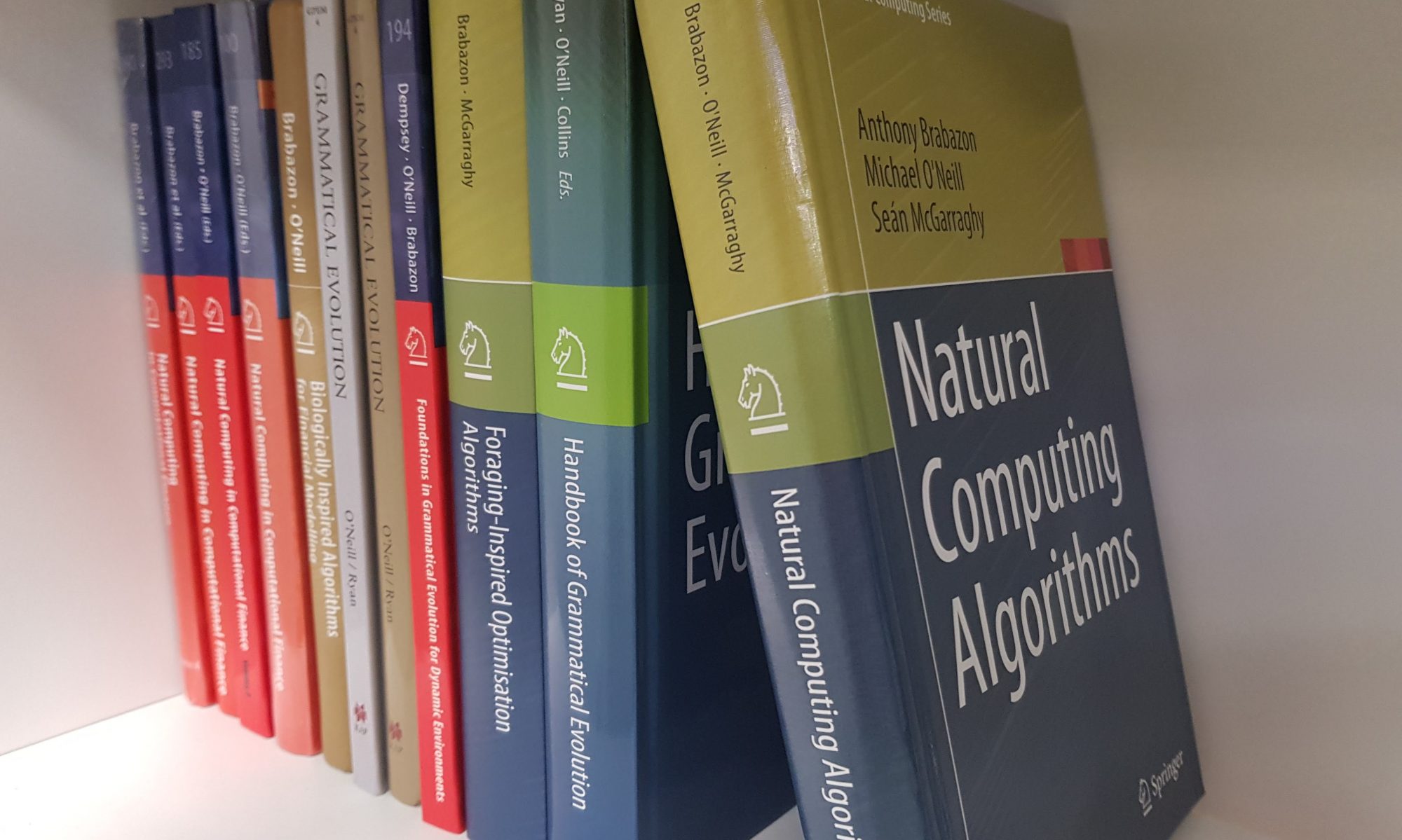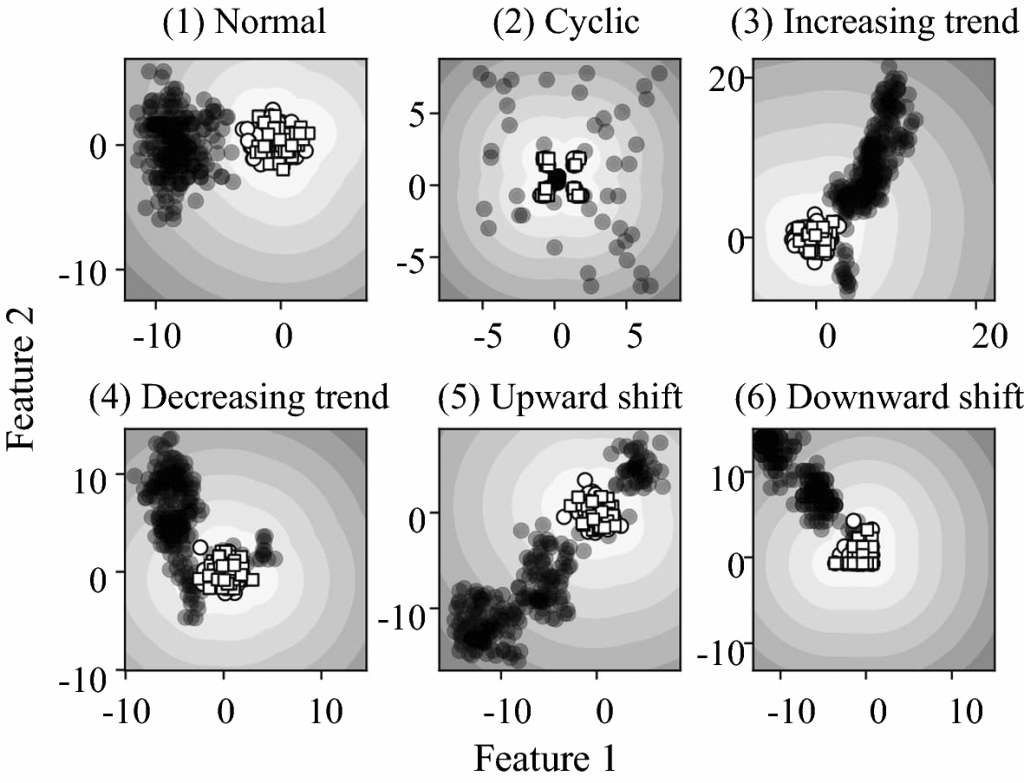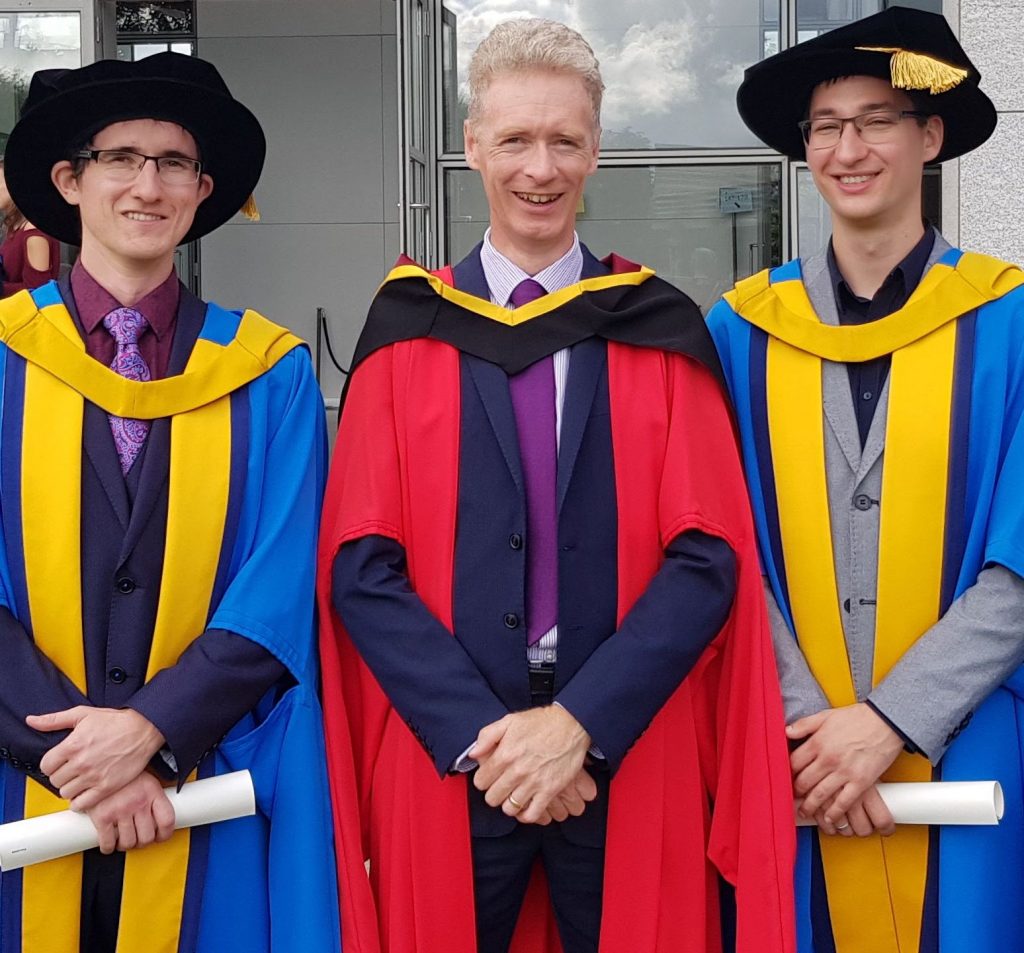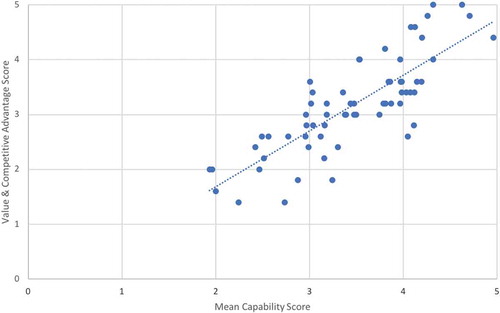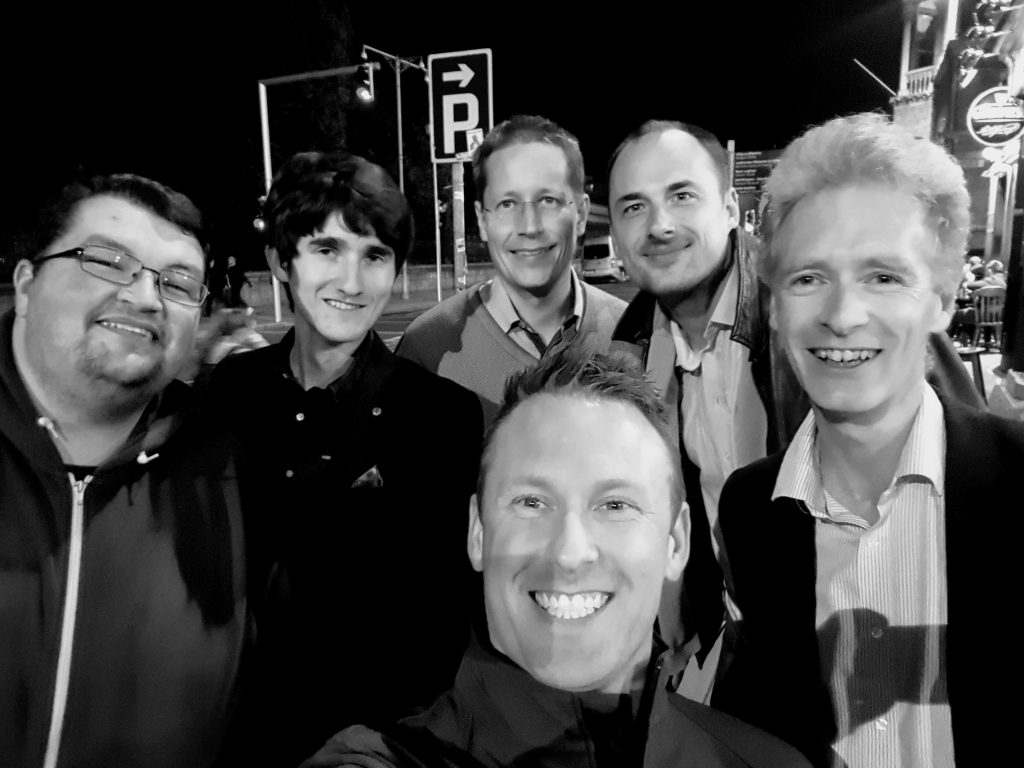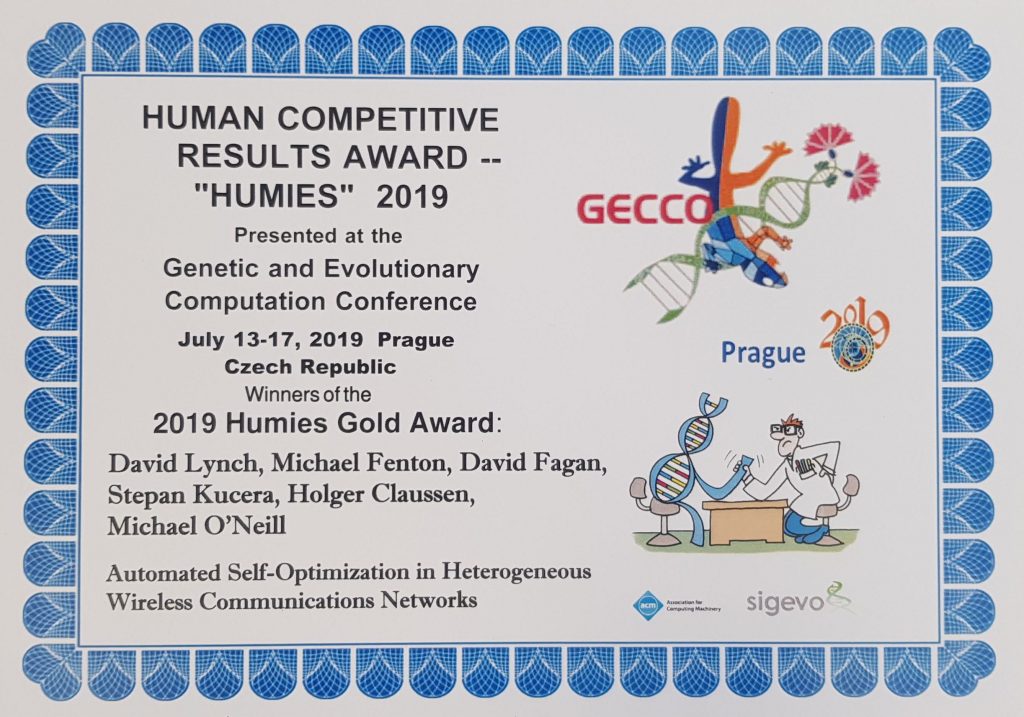Handcrafting mixed-integer linear programming (MILP) models can be a time-consuming and error-prone task. A novel algorithm, Grammatical Evolution for Constraint Synthesis (GECS), has been proposed which produces well-formed MILP models in the ZIMPL modelling language. GECS outperform state-of-the-art algorithms, and appears resistant to the curse of dimensionality. The research collaboration between Dr Tomasz Pawlak (Poznan University of Technology) and Prof Michael O’Neill (UCD Natural Computing Research & Applications Group) has been published in the journal Swarm and Evolutionary Computation.
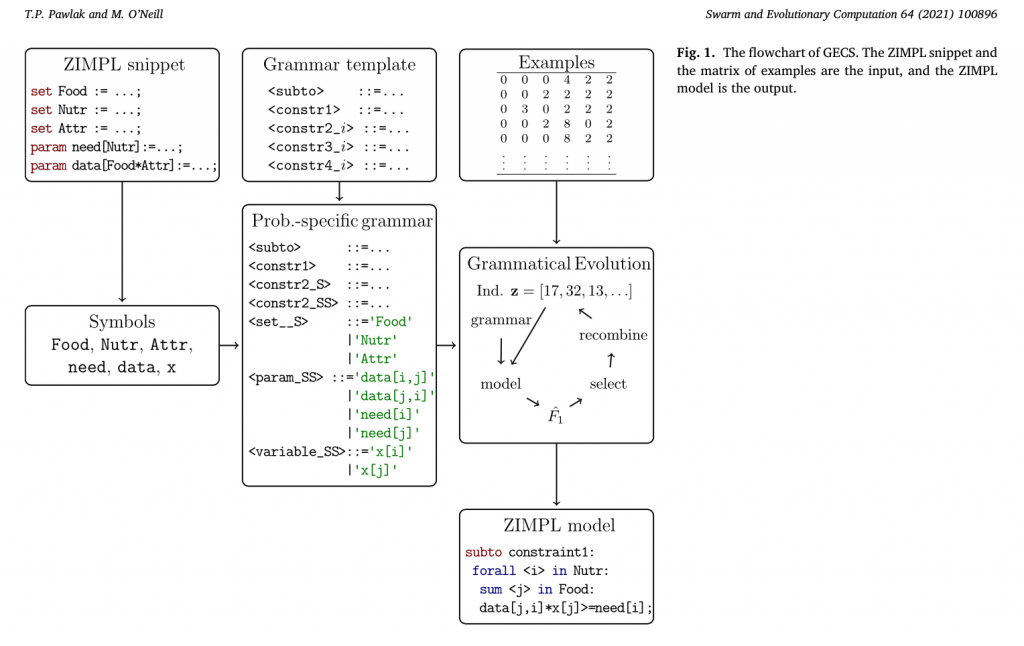
Pawlak T., O’Neill M. (2021). Grammatical Evolution for Constraint Synthesis for Mixed-Integer Linear Programming. Swarm and Evolutionary Computation, 64:100896.
